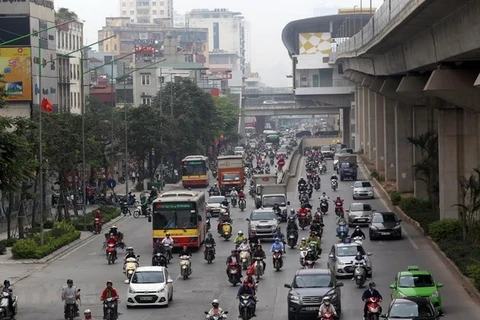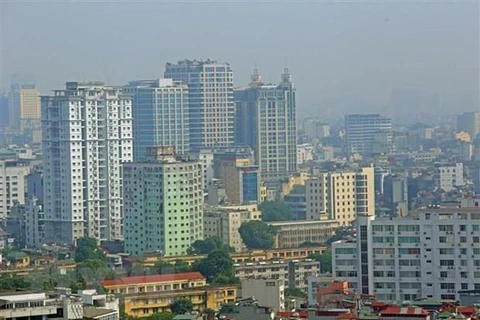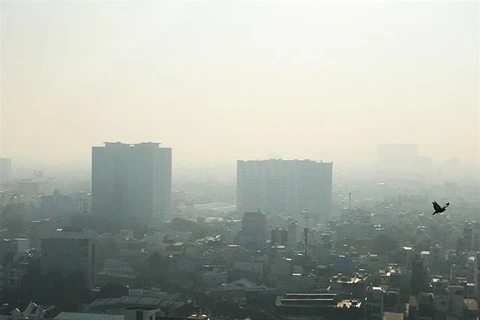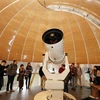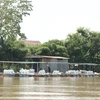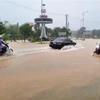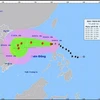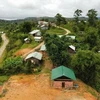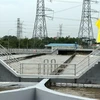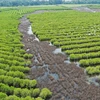Hanoi (VNS/VNA) - Air pollution in the capital city of Hanoi has risen to serious levels over the past two days.
AirVisual, an international air quality monitoring facility that generates data from public, ground-based and real-time monitoring stations, recorded on September 30 that Hanoi continued to be the most polluted city in the world with the Air Quality Index (AQI) exceeding the red-warning level. It reached the purple level with AQI of 272 at 6.30am.
Hoang Duong Tung, Chairman of the Vietnam Clean Air Partnership, said it was abnormal and needed careful research to find out why, he said.
Tung warned that people should limit morning exercises that would lead to them inhaling more dust.
He added that monitoring in the country remained limited. Hanoi has two fixed stations whereas Ho Chi Minh City has none.
Air pollution in Vietnam is caused by fine dust, specifically known as PM2.5, which is particulate matter that can be found in the air and is incredibly small. A single particle has a diameter of less than 2.5 micrometres. At this microscopic size, when inhaled, they penetrate directly into the bloodstream and travel to important internal organs.
Direct contact with PM2.5 can lead to serious respiratory, cardiovascular and neurological diseases. A PM2.5 pollution index of 12 microgrammes per cubic metre is considered to be at a safe level. This index is equivalent to AQI level 50.
The AQI is a metric used by multiple governmental agencies to determine how polluted the air is. An AQI level above 100 is considered polluted or unhealthy for humans. Children and people with respiratory and heart diseases are recommended to avoid outdoor activities when AQI levels reach 150 or above./.
VNA

